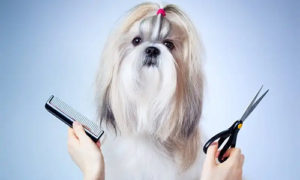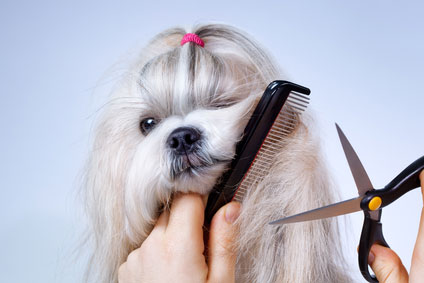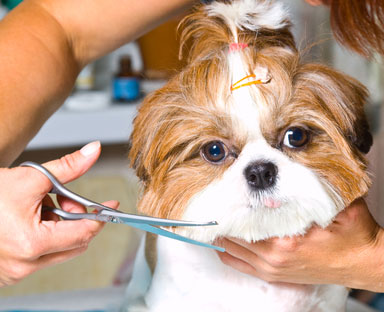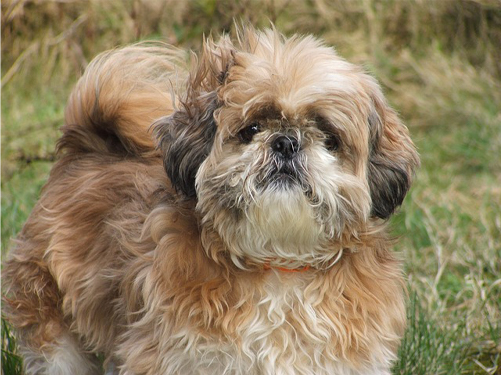
No matter how cute, charming, or charismatic your little Shih Tzu is. They must understand that the new family carpet is not a personal toilet. This reason alone is why Shih Tzus need training too.
Your Shih Tzu must also learn that your children’s fingers are not finger toys for nipping or that running outside as soon as the doors open is unsafe.
No matter how cute or polite a dog is, it must still be trained. You must also understand that your Shih Tzu is a dog and must not assume the homeowner’s role.
He or she needs to know and understand the rules; therefore, you must enforce them, or you could have an unruly Shih Tzu.
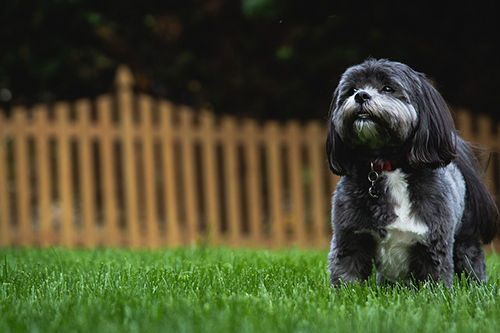
Remember, Shih Tzus need training; do not let them train you. Unfortunately, humans are just too easy to train.
For example, your Shih Tzu may have already had you trained to give him or her treats on consignment, give them a soft lap to lounge on, and show them affectionately when needed.
Most dog owners are easily controlled when it comes to cute little dogs.
Therefore, it is best to ask yourself before training your Shih Tzu: Who is training whom?
Shih Tzus Need Training: Here are Some Tips on How to Get Started
When training your Shih Tzu, you must start when they are as young as possible. Also, you want to teach at a pace your Shih Tzu can handle. Every puppy is different, and they learn and mature at different rates.
If your dog does not comprehend specific commands but seems to follow others, it might be too early for those particular tricks or commands. Do not yell or punish your Shih Tzu by striking or hitting her.
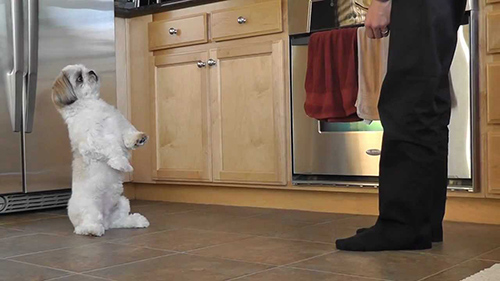
Harsh treatment will only frighten your dog, and you will not realize why you are angry and mean. Also, mistreating your Shih Tzu will undoubtedly affect the bond between you.
Yelling at puppies and hitting them will only make them timid dogs in the future. In other instances, battered dogs tend to become nervous and aggressive. Although Shih Tzus need training, they do not deserve mistreatment.
Puppies trained using positive reinforcement, treats, rewards, and lots of love, patience, and attention will develop into friendly, responsive, and extremely social Shih Tzus.
Before the training begins, you will need some supplies. These supplies include:
- A perfect, soft fabric collar that is adjustable in size. Make sure that the collar fits securely around the puppy’s neck but is slack enough that you can get two fingers between the collar and the back of the neck without it being too tight for the puppy.
- You will also need a standard form or retractable leash or lead. Retractable leads are much easier to work with because they allow the puppy more freedom, depending on the situation.
- The final item you will need is some highly flavorful and tasty treats for your Shih Tzu. Try to get healthy food not high in carbs, fats, or sugars. You can make great doggy treats with beef hotdogs, and dogs love them. Go to your icebox and take out a few hotdogs, thinly slice them, then put them in the microwave until they dry out and resemble the consistency of chips. You also have the option to cut them into ½ rounds or ¼ rounds if your Shih Tzu is still tiny. When it comes to treats for training, smaller ones are better, so remember to hand them out sparingly.
With your essential supplies, you are ready to start your Shih Tzu training.
DISCLAIMER: The information on shihtzudoginformation.com is intended for general knowledge and informational purposes only. The content is not a substitute for professional veterinary advice, diagnosis, or treatment. Always seek the advice of your veterinarian or other qualified animal health provider with any questions you may have regarding your dog’s health or medical condition.
References
- The Efficacy of Positive Reinforcement Training for Dogs: https://www.ncbi.nlm.nih.gov/pmc/articles/PMC6284367
- ASPCA – Barking: https://www.aspca.org/pet-care/dog-care/common-dog-behavior-issues/barking
- American Veterinary Society of Animal Behavior – Puppy Socialization: https://avsab.org/wp-content/uploads/2018/03/Puppy_Socialization_Position_Statement_Download_-_10-3-14.pdf
- American Kennel Club – Shih Tzu: https://www.akc.org/dog-breeds/shih-tzu
- Certification Council for Professional Dog Trainers: https://www.ccpdt.org



